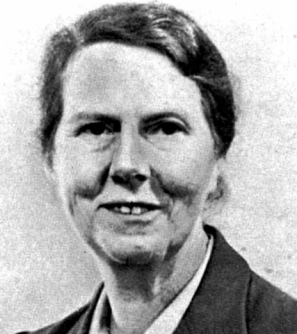
Geriatrics, or geriatric medicine, is a medical specialty focused on providing care for the unique health needs of the elderly. The term geriatrics originates from the Greek γέρων geron meaning "old man", and ιατρός iatros meaning "healer". It aims to promote health by preventing, diagnosing and treating disease in older adults. There is no defined age at which patients may be under the care of a geriatrician, or geriatric physician, a physician who specializes in the care of older people. Rather, this decision is guided by individual patient need and the caregiving structures available to them. This care may benefit those who are managing multiple chronic conditions or experiencing significant age-related complications that threaten quality of daily life. Geriatric care may be indicated if caregiving responsibilities become increasingly stressful or medically complex for family and caregivers to manage independently.

Polypharmacy (polypragmasia) is an umbrella term to describe the simultaneous use of multiple medicines by a patient for their conditions. The term polypharmacy is often defined as regularly taking five or more medicines but there is no standard definition and the term has also been used in the context of when a person is prescribed 2 or more medications at the same time. Polypharmacy may be the consequence of having multiple long-term conditions, also known as multimorbidity and is more common in people who are older. In some cases, an excessive number of medications at the same time is worrisome, especially for people who are older with many chronic health conditions, because this increases the risk of an adverse event in that population. In many cases, polypharmacy cannot be avoided, but 'appropriate polypharmacy' practices are encouraged to decrease the risk of adverse effects. Appropriate polypharmacy is defined as the practice of prescribing for a person who has multiple conditions or complex health needs by ensuring that medications prescribed are optimized and follow 'best evidence' practices.
The Beers Criteria for Potentially Inappropriate Medication Use in Older Adults, commonly called the Beers List, are guidelines published by the American Geriatrics Society (AGS) for healthcare professionals to help improve the safety of prescribing medications for adults 65 years and older in all except palliative settings. They emphasize deprescribing medications that are unnecessary, which helps to reduce the problems of polypharmacy, drug interactions, and adverse drug reactions, thereby improving the risk–benefit ratio of medication regimens in at-risk people.

Gerontological nursing is the specialty of nursing pertaining to older adults. Gerontological nurses work in collaboration with older adults, their families, and communities to support healthy aging, maximum functioning, and quality of life. The term gerontological nursing, which replaced the term geriatric nursing in the 1970s, is seen as being more consistent with the specialty's broader focus on health and wellness, in addition to illness.
Transitional care refers to the coordination and continuity of health care during a movement from one healthcare setting to either another or to home, called care transition, between health care practitioners and settings as their condition and care needs change during the course of a chronic or acute illness. Older adults who suffer from a variety of health conditions often need health care services in different settings to meet their many needs. For young people the focus is on moving successfully from child to adult health services.
Geriatric medicine, as a speciality, was introduced in Egypt in 1982, and in 1984 a geriatrics and gerontology unit in Ain Shams University Faculty of Medicine was established.
Geriatric oncology is a branch of medicine that is concerned with the diagnosis and treatment of cancer in the elderly, usually defined as aged 65 and older. This fairly young but increasingly important subspecialty incorporates the special needs of the elderly into the treatment of cancer.

The British Geriatrics Society (BGS) is the professional body of specialists in the healthcare of older people in the United Kingdom. Membership is drawn from doctors, nurses, allied health professionals, researchers and others working in the field of geriatric medicine with a particular interest in improving healthcare for older people. It has over 4,000 members worldwide and is the only Society in the UK which draws together experts from all the relevant disciplines in the field. The current President is Professor Adam Gordon.
Diane E. Meier, an American geriatrician and palliative care specialist. In 1999, Dr. Meier founded the Center to Advance Palliative Care, a national organization devoted to increasing access to quality health care in the United States for people living with serious illness. She continues to serve as CAPC's Director Emerita and Strategic Medical Advisor. Meier is also Vice-Chair for Public Policy, Professor of Geriatrics and Palliative Medicine and Catherine Gaisman Professor of Medical Ethics at the Icahn School of Medicine at Mount Sinai Hospital in New York City. Meier was founder and Director of the Hertzberg Palliative Care Institute at the Icahn School of Medicine in New York City from 1997 to 2011.
West Health is a family of non-profit, nonpartisan organizations that includes the Gary and Mary West Foundation, a private foundation and the West Health Institute, an applied medical research organization, based in San Diego and the West Health Policy Center, based in Washington, D.C. Its mission is to lower healthcare costs to enable seniors to successfully age in place with access to high-quality, affordable health and support services that preserve and protect their dignity, quality of life and independence. West Health is solely funded by entrepreneurs and philanthropists Gary and Mary West.
Teresa Thomas "Terry" Fulmer, is the current president of The John A. Hartford Foundation. Earlier positions include distinguished professor and dean of the Bouvé College of Health Sciences at Northeastern University and dean of the College of Nursing at New York University. She is known for her extensive research in geriatrics and elder abuse. She has received funding from the National Institute on Aging, the National Institute of Nursing Research and other foundations for her research regarding elder abuse.
The Eldercare Workforce Alliance (EWA), a project of the Tides Center, is a coalition of 35 US national organizations that came together to focus on short- and long-term healthcare workforce issues relating to older adults. The Alliance helped pass the 2018 Raise Family Caregivers Act, supports ongoing funding for the Title VII Geriatrics Workforce Enhancement Program, and advocates for including elder care in government and professional policies, including related questions of educating and maintaining the labor force such care requires.
The John A. Hartford Foundation is a private United States-based philanthropy whose current mission is to improve the care of older adults. For many years, it made grants for research and education in geriatric medicine, nursing and social work. It now focuses on three priority areas: creating age-friendly health systems, supporting family caregivers and improving serious illness, and end-of-life care.
Sidney Katz, MD was a pioneering American physician, scientist, educator, author, and public servant who developed the Index of Independence of Activities for Daily Living (ADLs) in a career spanning more than sixty years. He made several other advances in geriatric care, including the U.S. Nursing Home Reform Act of 1987, which established basic rights for nursing home residents. Katz received several public and private awards, including the Maxwell A. Pollak Award (1993) and the American Geriatrics Society’s (AGS) Foundation for Health in Aging (2001). The AGS award was also won by former US President Jimmy Carter and poet Maya Angelou.
Vallalarpuram Sennimalai Natarajan is an Indian geriatric physician, considered by many as the Father of Geriatric Medicine in India and known to be the first Indian Professor in the discipline. He was honored by the Government of India, in 2012, with the fourth highest Indian civilian award of Padma Shri.

Marjory Winsome Warren is one of the first geriatricians and considered the mother of modern geriatric medicine.
Gerodiversity is the multicultural approach to issues of aging. This approach provides a theoretical foundation for the medical and psychological treatment of older adults within an ecological context that includes their cultural identity and heritage, social environment, community, family system, and significant relationships. Gerodiversity encompasses a social justice framework, which considers the social and historical dynamics of privilege and inequality. In addition to issues of aging, gerodiversity includes race, ethnicity, language, gender identity, socioeconomic status, physical ability or disability, sexual orientation, level of education, country of origin, location of residence, and religion or spirituality.
Jiska Cohen-Mansfield is the Igor Orenstein Chair for the Study of Geriatrics at Tel Aviv University Medical School and a professor at the Department of Health Promotion at the School of Public Health in the Sackler Medical Faculty at Tel Aviv University. She is the director of the Minerva Center for Interdisciplinary Study of End of Life at Tel-Aviv University.
Comprehensive geriatric assessment (CGA) is a process used by healthcare practitioners to assess the status of people who are frail and older in order to optimize their subsequent management. These people often have complex, multiple and interdependent problems (multimorbidity) which make their care more challenging than in younger people, or those with just one medical problem. CGA is the core work of specialists in the care of older people, although many other health care practitioners either have not heard of it, or are not aware of what it actually is. It is also called "multidimensional geriatric assessment."
Helen L. Smits was a health policy influencer and advocate in the United States, and lent her voice to several healthcare initiatives abroad. Most notably, she was a recipient of the Fulbright scholarship and served under the Carter and Clinton administrations. She also held positions in government organizations including the National Institutes of Health (NIH) and Healthcare Financing Administration.



